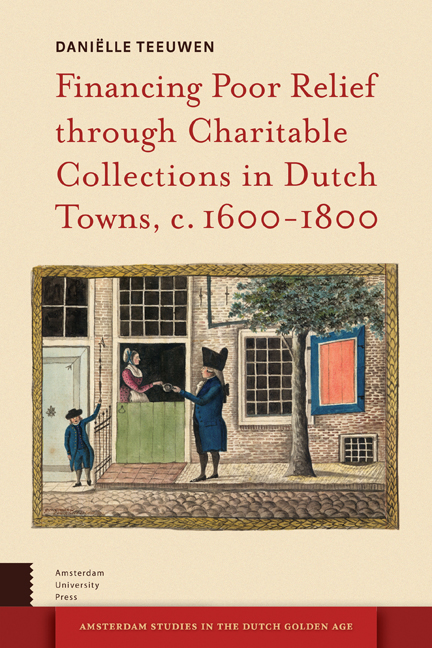5 - The Rhetoric of Giving
Published online by Cambridge University Press: 10 December 2020
Summary
On 17 April 1606, the Utrecht town council publicly announced a collection that would be held to assist poor inhabitants, and then especially impoverished newcomers. The decree stated that on the next day, which was Good Friday, members of the municipality and civic militias would go door-todoor to collect donations, and that everyone was ‘earnestly admonished’ to give, and then especially ‘those who God almighty has richly provided with temporary goods and means’. Next, the announcement went on to stress that there was no need to worry that donations would benefit any ‘idlers, vagrants and lazy beggars’, as these people would be excluded from help. It was moreover argued that contributing to the collection would enable poor families to make a living in a respectable way, and would help the town council to clear the streets from beggars. In the end, it was emphasized that charitable acts would be ‘rewarded by God a thousand times’.
Decrees as this one were issued on a regular basis. Poor relief institutions, which functioned as intermediaries between givers and receivers, had to convince the population of the need to give and to establish trust that donations would be well-spent. They communicated their messages via printed publications distributed through town and read out loud by town criers, as well as via announcements made during church services. In the case of this specific example, the Utrecht town council chose to emphasize that only the ‘deserving poor’ would receive assistance as well as that charitable acts would have a positive impact on the people's position in the afterlife. As we shall see, these were both oft-used arguments. This chapter studies the rhetorical tactics applied by urban and church authorities to encourage people to generously donate to poor relief institutions, and analyses both civic and religious exhortations to give.
Perceptions of poverty and charity
In literature on views and images of the poor in medieval and early modern times, changes within this period in who were perceived to be poor, and who was considered to be worthy of receiving charity are often emphasized. Usually, shifts in the perception of poverty and charity are observed in the sixteenth as well as in the eighteenth century.
- Type
- Chapter
- Information
- Publisher: Amsterdam University PressPrint publication year: 2015



